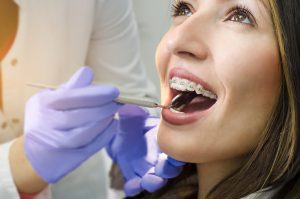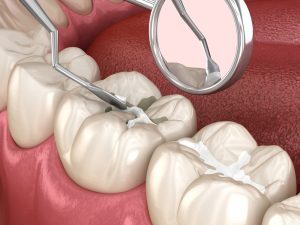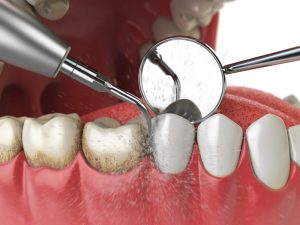When to get your wisdom tooth extracted
You might have heard of wisdom teeth before in your life, and is a fact that lots of people fear these particular teeth that appear at a determined age on the back corner of your mouth both on top and bottom.
However, what makes them truly fearsome is not their appearance in general, but when they get impacted due to not having enough room in your mouth because after that, a great episode of pain and possible dental issues or infections will begin at a fast pace, and you want to prevent that, right? So stay tuned to discover about wisdom teeth extraction and everything related to it.
What is Wisdom Teeth Extraction?
In simple words, wisdom teeth extraction is a dental surgical procedure that consists of the complete removal or extraction of the different wisdom teeth that might be inside your mouth on the back corners in both top and bottom, this procedure is performed with a single purpose, avoid and put an ending to ht multiple episodes of pain and annoyance that could be developed for impacted wisdom teeth that didn’t have enough space to appear on your mouth’s surface
It may be true that you will be free of pain and problems if your wisdom teeth manage to get enough space inside your mouth, however, lots of dentists and oral surgeons recommend to pull out or remove these permanent teeth to avoid any possible issue in the future, even if they are not causing anything at the moment, they say it will be the best for your life quality and comfort in the future. If you need a tooth removed, you can get it done over at Waldorf Dental Group.
Benefits of Wisdom Teeth Extraction:
There are some good benefits in this procedure that caught the attention of lots of individuals to follow the procedure and furthermore remove their wisdom teeth at the exact moment when they appear in your mouth, however, here is a summarized version of the most important benefits, check them out:
- First of all, you will be free of any pain that could be caused for impacted wisdom teeth.
- Also, you can forget about the fact that you will be free of any possible dental issue or infection that could be developed for impacted wisdom teeth in the future.
- It’s possible to suffer from tooth decay due to avoiding or negating the removal of wisdom teeth, so after removing them you will be free of any dangerous possibilities and outcomes.
- You will be able to have a better life and your routine will be less painful and more comfortable due to the extinction of those pain and discomforts caused by such problem.
Who is it for?
This procedure is very straightforward, and just as the general objectives, it’s easy to say that the only ones who can arrange such a removal procedure are those who suffer from the appearance of their wisdom teeth and also if they are developing major pain due to an impacted wisdom teeth.
Remember, you could be part of the lucky group that doesn’t require the removal of their wisdom teeth, but if you can afford it, then you should consider removing them to be future-proof of any dental issue that could be developed from such a situation.
 tioning, odd jaws, and face. A person experiencing underbite or overbite, crooked teeth, overcrowded teeth, or misaligned jaws should visit orthodontics to rectify those misalignments. It can result in eating and speaking difficulties. Although orthodontic treatments are slow, they were once done; they permanently change the teeth positioning, thus straightening and aligning teeth.
tioning, odd jaws, and face. A person experiencing underbite or overbite, crooked teeth, overcrowded teeth, or misaligned jaws should visit orthodontics to rectify those misalignments. It can result in eating and speaking difficulties. Although orthodontic treatments are slow, they were once done; they permanently change the teeth positioning, thus straightening and aligning teeth. s so that it does not accumulate food particles that can cause tooth decay and cavities. Hence, the application of dental sealants creates an excellent barrier to cavities as it is a plastic material that allows you to clean the back of your teeth carefully and effectively.
s so that it does not accumulate food particles that can cause tooth decay and cavities. Hence, the application of dental sealants creates an excellent barrier to cavities as it is a plastic material that allows you to clean the back of your teeth carefully and effectively.
 rushing them with a quality electric brush that makes an odd grinding noise.
rushing them with a quality electric brush that makes an odd grinding noise.